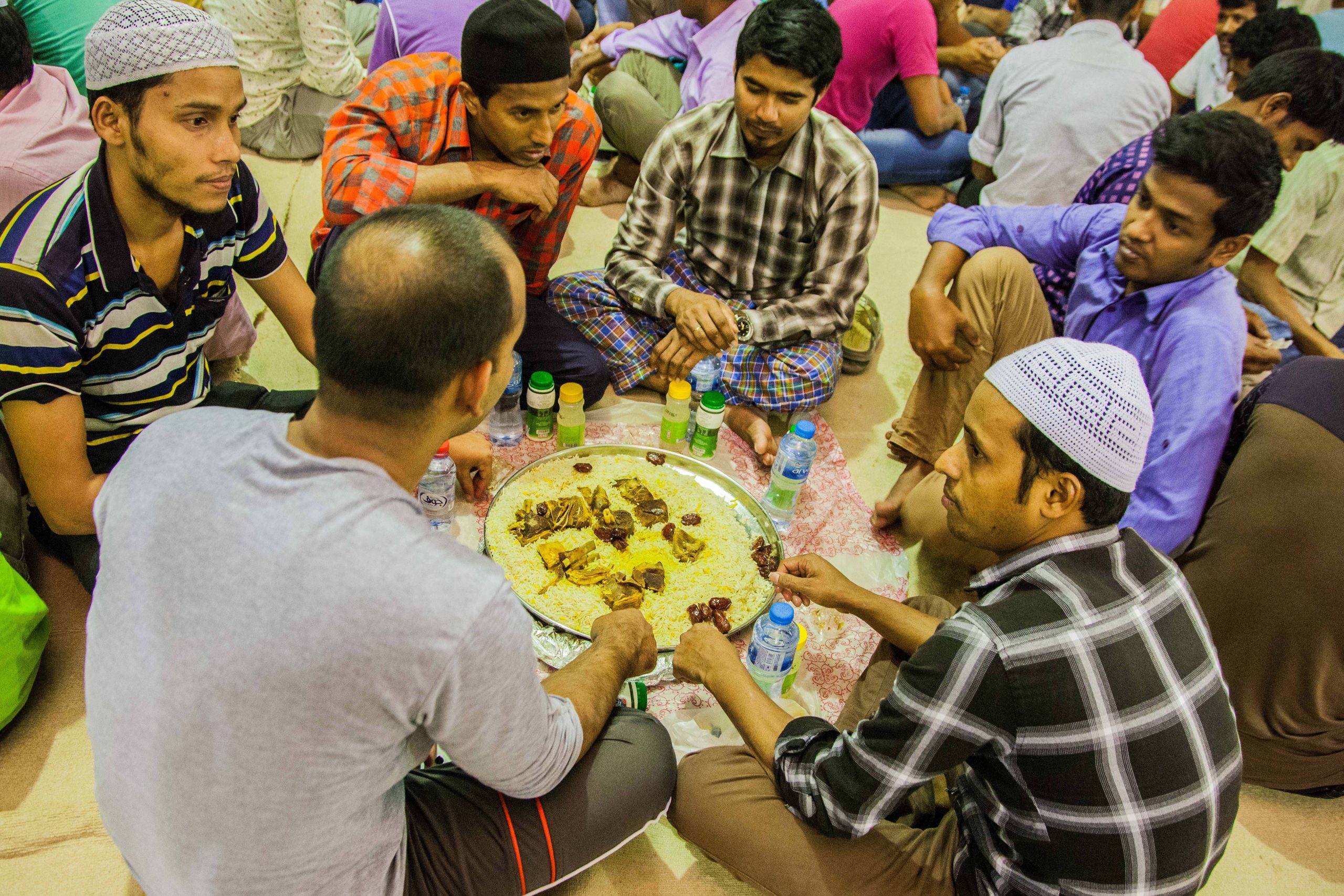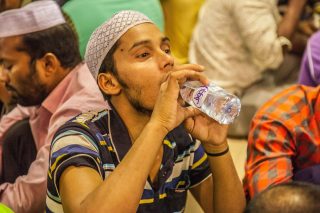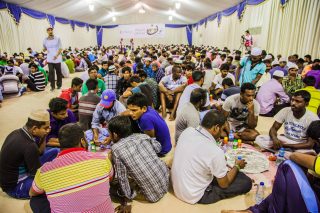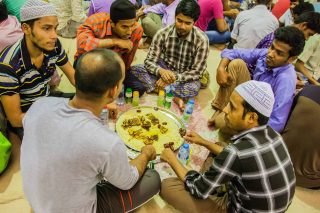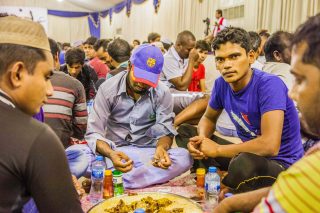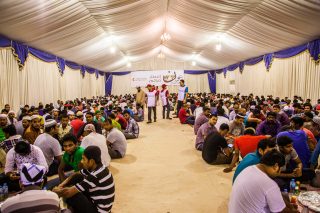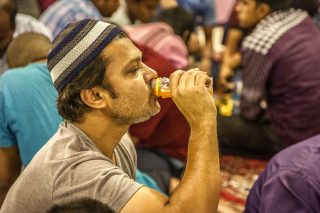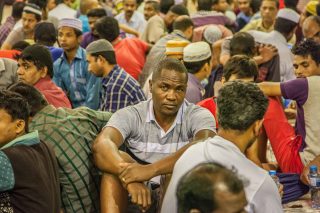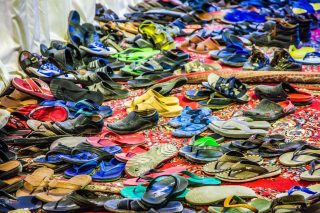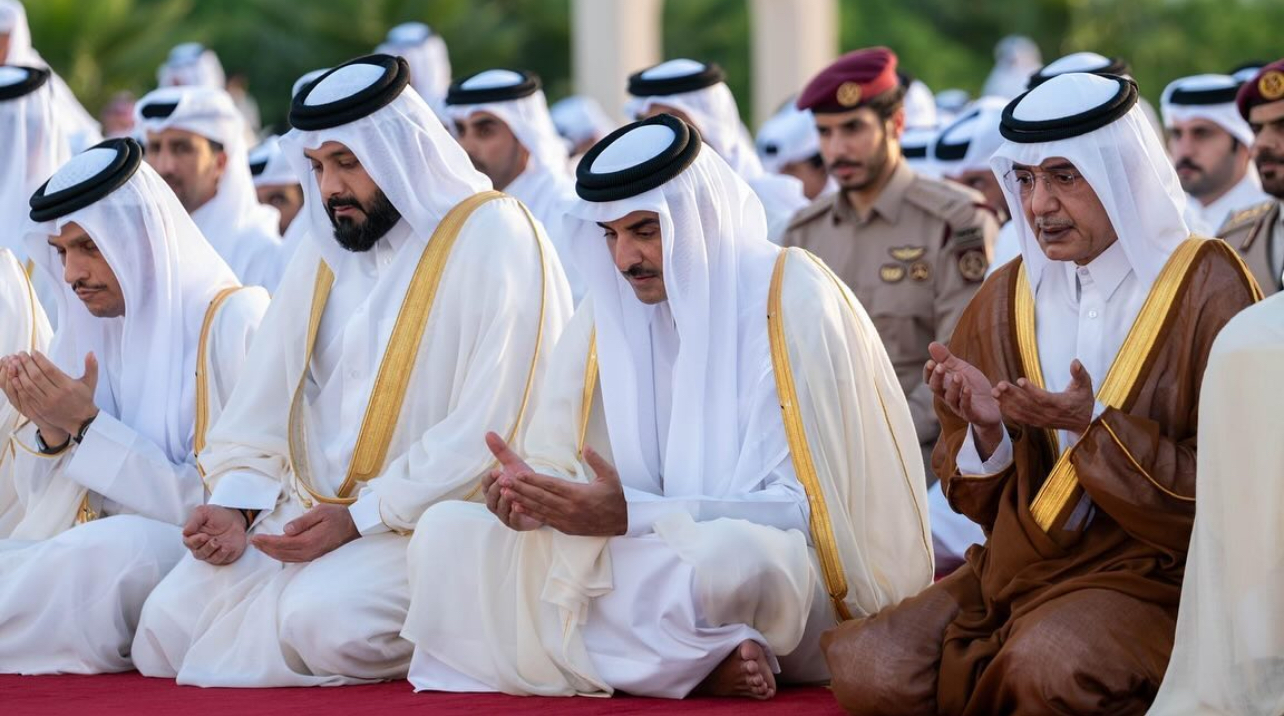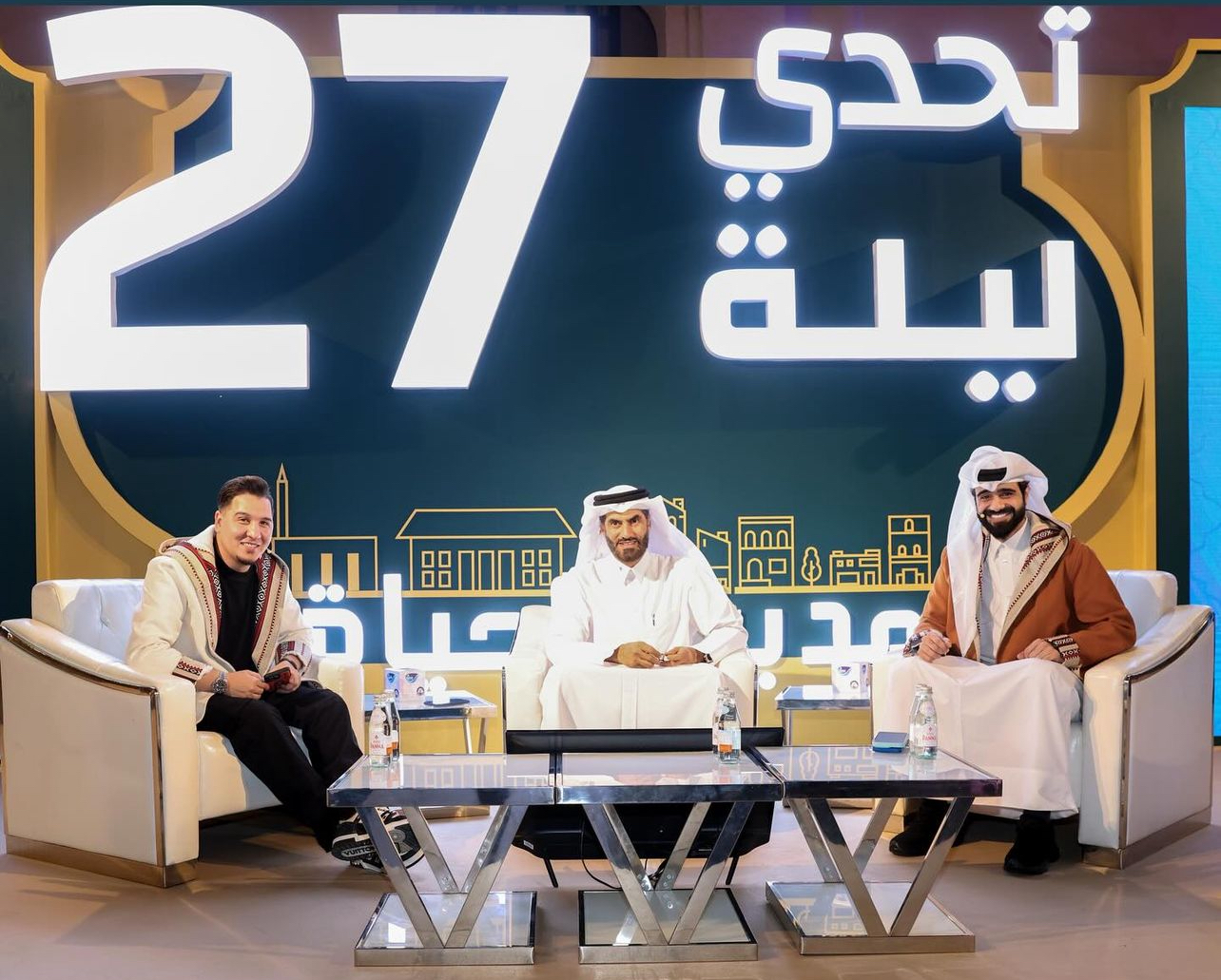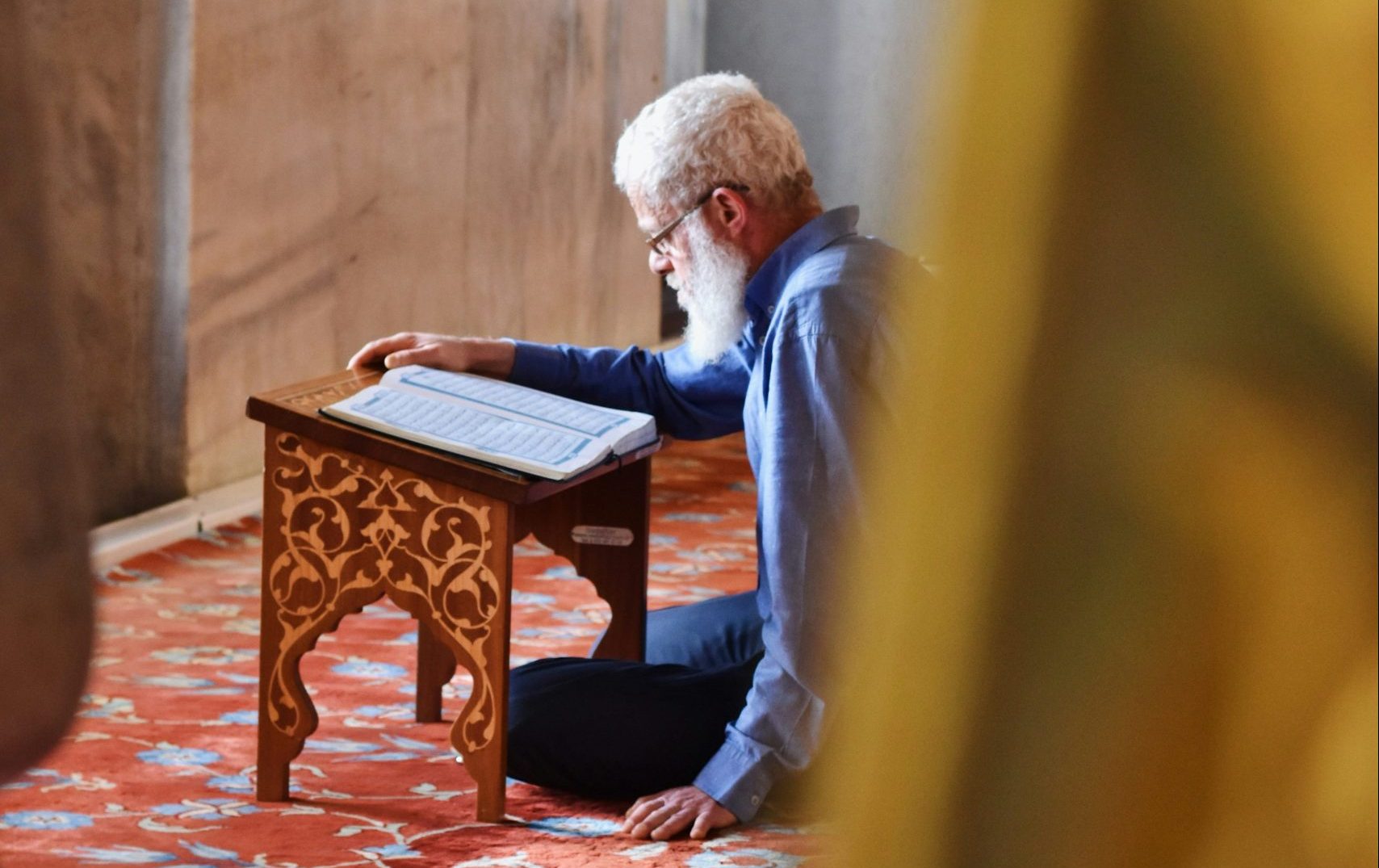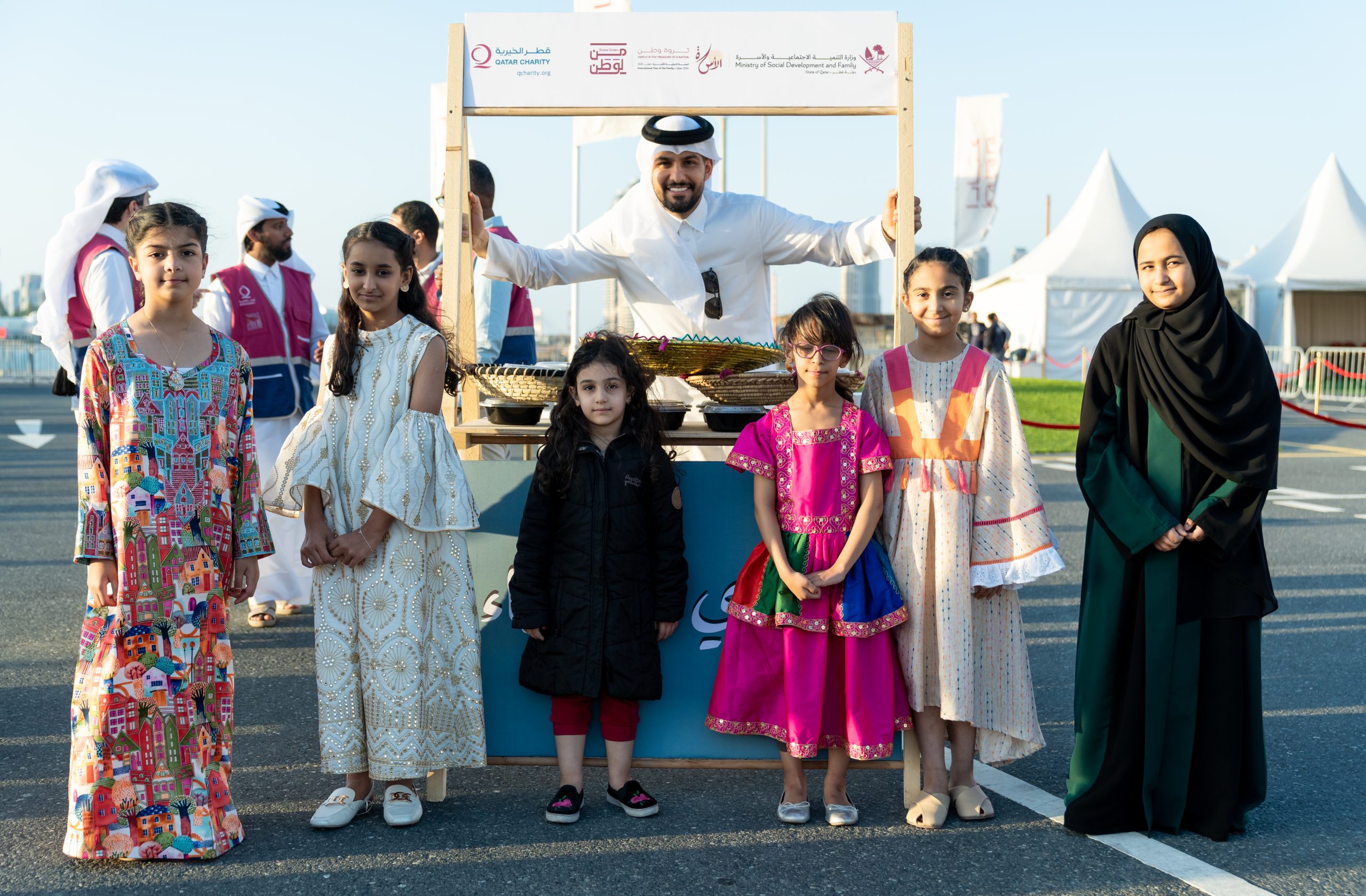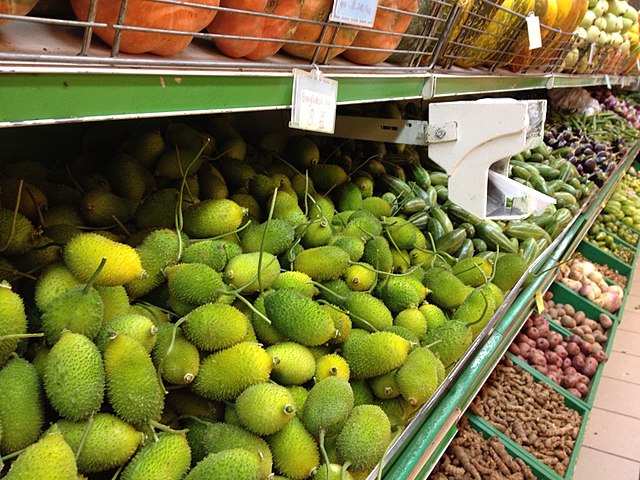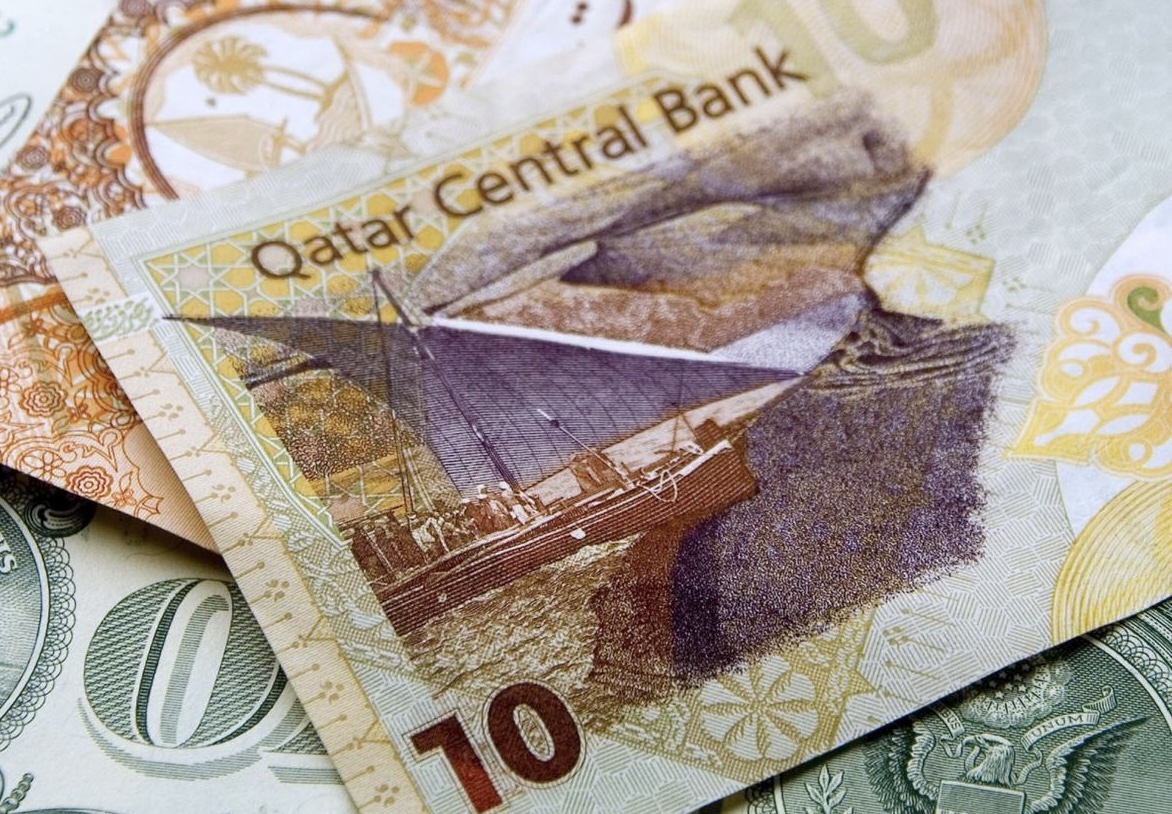All photos by Reem Saad
Each night, at least 750 blue-collar workers gather at one of Al Wakrah’s largest iftar tents to mark the breaking of the fast.
The air-conditioned tent is sponsored by the Qatar Red Crescent Society (QRCS), and is one of many venues set up by charities across the country to provide free meals to people during Ramadan.
For more than a decade, QRCS operated an iftar tent near its office and the Corniche, which was large enough to feed at least 3,000 attendees a day. But due to licensing issues, the main tent is no longer available this year, a QRCS volunteer told Doha News.

However, the charity is handing out meals in Al Wakrah, Al Khor and the Industrial Area.
“Unfortunately this year, we were not able to obtain the license for setting up the main tent, so to make up for the loss, we built a total of three tents around the country,” the volunteer said.
“The tents in Al Khor and Al Wakrah contain venues for workers to sit and eat, while the one in Industrial Area is only set up for distribution of meals in food packages.”
At capacity, the tents feed some 2,000 workers a day, most hailing from India, Pakistan, Sri Lanka, the Philippines, Myanmar and Bangladesh.
In total, QRCS’s iftar tents, meal distribution and food packages for families are expected to feed more than 100,000 people over the course of the month, a QRCS spokesman previously told Doha News.
Emotional support
Such initiatives are very common in Doha, as charities and families often step up acts of kindness during the holy month of Ramadan.

Speaking to Doha News, QRCS’s head of communication Ahmed Attia explained the rationale behind the tents:
“Most of these men live alone and are away from their families. All year, especially in Ramadan while they’re fasting, no one is there to take care of them and feed them like this.
So this is a form of emotional support we are providing them to let them know that organizations like us will always be there to take care of them.”
Like every year, the meals alternate between 120 large trays of either chicken and rice or meat and rice shared between six people, each of whom are also provided with a packet of dates, water, juice and laban.
A supervisor ensures the food prep and delivery is sanitary, a charity volunteer said.
In addition to distributing meals, the tents offer Islamic lectures daily in three languages: Arabic, English and Urdu. On some days, free check-ups for blood sugar and pressure are also conducted.
Speaking to Doha News, a Filipino expat said he appreciated the tents for their communal atmosphere:
“I come to this tent from two years. I’m not Muslim, but I like this place because I feel welcome. You know, I’m a Christian but when I come here I don’t feel like anyone cares about that. We just eat together.”
Thoughts?
More Ramadan stories here:
https://dohanews.co/ramadan

